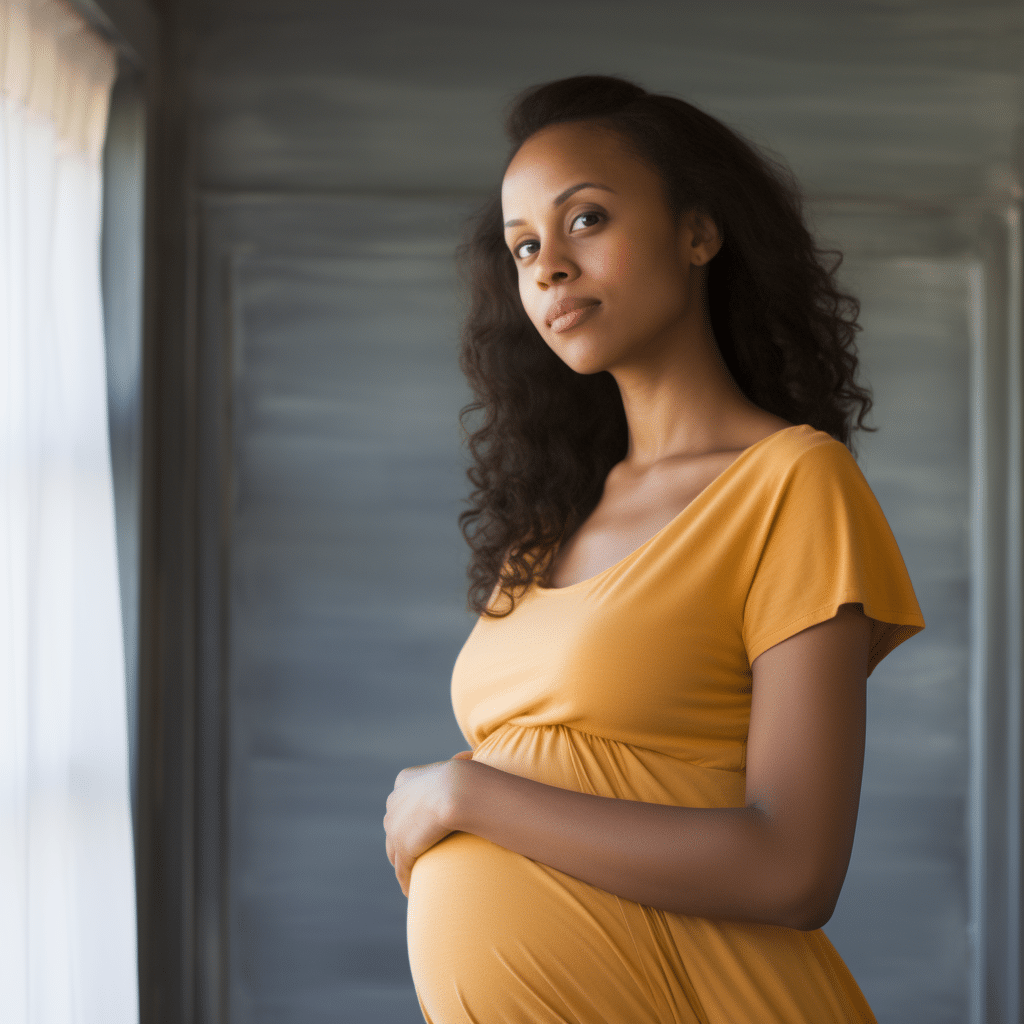
Late Pregnancy: Signs, Symptoms, and Coping Tips
Signs, Symptoms, and Coping Tips
Late pregnancy brings about unique changes to a woman’s body. It is important to be aware of the signs and symptoms that may indicate the arrival of your little one. Here’s what to watch out for:
1. Fetal movement
As your baby grows, those fluttering sensations will turn into distinct kicks and rolls. Feeling these movements is a sign your baby is healthy and active.
2. Braxton Hicks contractions
You may have more of these, which are usually painless but can still be uncomfortable. They are nature’s way of preparing your body for labor.
3. Edema or swelling
Due to increased fluid retention, many pregnant women find their feet and ankles swollen. Monitor this, as excessive or sudden enlargement could be a sign of preeclampsia.
To make sure your baby is healthy, you should keep track of any quick changes in how much your baby moves. Also, keep in mind that every woman’s pregnancy is different. When expecting moms know the signs and symptoms, they can spot problems early on.
Fun fact:
The American College of Obstetricians and Gynecologists (ACOG) says that pregnant women should try to do moderate aerobic exercise for at least 150 minutes per week, unless their doctor tells them otherwise.
Understanding Late Pregnancy

The third trimester, also known as late pregnancy, is a vital part of a woman’s journey to motherhood. It’s marked by a number of physical and mental changes that signal the baby’s arrival.
- 1. Unpleasantness increases due to the growing baby size, as the uterus expands and puts pressure on other organs. This can cause shortness of breath, heartburn, etc.
- 2. Hormone fluctuations create mood swings and fatigue. The body is working hard to prepare for labor, which causes heightened emotions and low energy.
- 3. Other physiological symptoms common to late pregnancy are Braxton Hicks contractions, swollen ankles & feet, frequent urination, and back pain.
Additionally, some women may have special feelings such as nesting instincts or clumsiness. It’s important to be aware of these signs to seek medical help if needed.
In 1858, Dr. Rudolph Carl Virchow found pregnant women in their third trimester experienced issues from the uterus compressing blood vessels. This shows us that late pregnancy has long been seen as a significant time.
By understanding late pregnancy better, we see it involves physical and mental changes. Knowing these signs gives pregnant women knowledge and confidence to go through this amazing period.
Common Signs and Symptoms
Pregnancy is an amazing adventure! As the due date draws near, expectant mums may experience many different signs and symptoms. These can tell us a lot about the development of late pregnancy. Here are some common ones:
- Urinating more often: This is usually down to the baby taking up more space in the tummy, putting pressure on the bladder.
- Swelling: Swelling of feet, ankles and hands is normal in late pregnancy. This is due to increased fluid and blood circulation.
- Backache: The extra weight of the baby can strain the back muscles, causing discomfort or pain.
It’s essential to keep in mind that each pregnancy is unique. Other signs and symptoms include heartburn, shortness of breath, varicose veins and sleep issues.
Late pregnancy needs particular care and attention. Expectant mums should talk with their doctor regularly and be aware of any strange symptoms arising. By recognising these signs and seeking medical help as soon as possible, you can make sure your pregnancy is healthy.
Remember, every day brings you closer to meeting your precious baby. Stay informed and don’t miss out on any important cues from your body. Face this incredible stage with confidence and get ready to welcome your bundle of joy into the world!
When to Seek Medical Attention

Late pregnancy? Keep your eyes peeled for signs and symptoms that need medical help! Unusual or severe abdominal pain? Sudden swelling in hands, face, or legs? Decrease in fetal movement? Any vaginal bleeding or fluid leaking? Get help right away!
Headaches or vision changes? Could be preeclampsia! High fever? Difficulties breathing? Seek medical aid, as these can be signs of an infection or some serious conditions.
Each pregnancy is unique, and experiences vary. If you have any worries about your health, or your baby’s, it’s better to be safe than sorry – talk to your healthcare provider.
The Journal of Obstetrics and Gynaecology Canada found that timely medical attention during late pregnancy can prevent bad outcomes for both mother and baby.
Coping Mechanisms and Remedies
Pregnancy in the later stages can bring challenges and discomfort. But, you can find relief with these tips:
- Stay active – gentle exercise can help with circulation, energy and pregnancy aches.
- Relax – deep breathing, meditation and yoga can manage stress and promote wellbeing.
- Drink plenty of water – hydration and swelling can be reduced.
- Get enough rest – prioritize sleep and take naps.
- Get support – friends, family and pregnancy support groups can give emotional support.
Adapt to your body’s needs, every pregnancy is different. This phase will pass quickly, make memories by taking care of yourself. Don’t let stress overwhelm you, embrace motherhood with confidence!
Conclusion
Late pregnancy brings many signs and symptoms. The body changes to get ready for baby arrival. Tiredness, pelvic pressure, Braxton Hicks contractions, and swollen ankles can be experienced.
Fatigue is a key sign. The body works harder and needs more rest.
Pelvic pressure may arise too. This is normal and resolves after birth.
Braxton Hicks contractions are like practice ones and can cause some discomfort.
Swelling in the ankles can be seen. To help this, elevate legs and wear comfortable shoes.
Pro Tip: A balanced diet plus hydration can manage these symptoms.
Frequently Asked Questions
FAQ 1:
What are the signs of late pregnancy?
Some common signs of late pregnancy include frequent urination, back pain, swelling in the feet and ankles, difficulty sleeping, and Braxton Hicks contractions.
FAQ 2:
How can I tell if I’m in the late stages of pregnancy?
As you enter the late stages of pregnancy, you may experience increased fatigue, nesting instincts, decreased fetal movement, and the baby “dropping” lower into the pelvis. Your healthcare provider will also monitor the progress through regular check-ups.
FAQ 3:
Are there any warning signs or symptoms I should watch for during late pregnancy?
Yes, there are some warning signs you should not ignore during late pregnancy. These may include severe abdominal pain, vaginal bleeding, sudden swelling in the face or hands, severe headaches, or decreased fetal movement. If you experience any of these, contact your healthcare provider immediately.
FAQ 4:
Can back pain be a sign of late pregnancy?
Yes, back pain is a common symptom of late pregnancy. It can be caused by the weight gain and change in posture as your baby grows. If the pain becomes severe or is accompanied by other symptoms, it’s important to consult your healthcare provider.
FAQ 5:
What are Braxton Hicks contractions, and are they a sign of late pregnancy?
Braxton Hicks contractions are mild, irregular contractions that can occur throughout pregnancy, but they may become more noticeable in the late stages. They are often described as practice contractions and help prepare the uterus for labor.
FAQ 6:
Is it normal to experience difficulty sleeping in late pregnancy?
Yes, as the due date gets closer, many pregnant women have trouble sleeping. This can be caused by pain, having to go to the bathroom a lot, stress, or changes in hormones. Good sleep habits, such as going to bed at the same time every night and using pregnancy pillows for support, may help improve the quality of sleep.